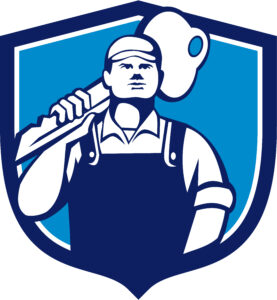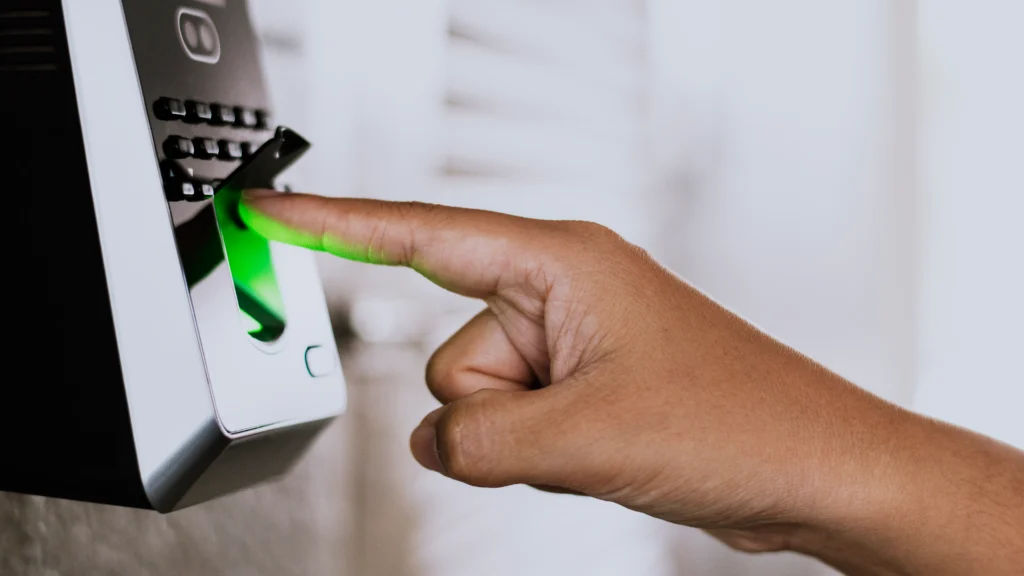Locksmiths are pretty amazing, but there are some locks that even they can’t get past.
If any of the locks in your home and business fall into this category, you might want to create contingency plans for what happens if you or your relatives are locked out.
Biometric and Smart locks
Traditional mechanical locks are susceptible to picking, bumping, drilling, and brute force tracks among others.
That’s why many home and business owners have opted to give them up in favor of biometric and smart locks.
Biometric locks use unique identifying features like fingerprints or retinas, while smart locks utilize keypads and Internet technology to keep residential and commercial property safe.
These are considered to be high-security locks because they use unique and personal characteristics of the user to grant access, making it difficult for unauthorized people to bypass the lock.
They are also more tamper-proof than traditional locks because they do not have physical keys that can be lost, stolen, or duplicated.
But, if you lose access to the data needed to open these locks, you could be in for a time.
Picking either of these locks is not a straightforward process, as it will involve bypassing the lock’s electronic components, rather than simply manipulating the mechanical components.
A locksmith would need to have a deep understanding of the lock’s technology, as well as advanced skills in electronics and hacking. This might include:
- Reverse engineering: Analyzing the lock’s design and functionality to determine how it works and how it can be bypassed.
- Circuit analysis: Examining the lock’s electrical components and connections to understand how they interact with one another.
- Software analysis: Analyzing the lock’s software and firmware to understand how it processes biometric data and grants access.
- Physical attack: Attempting to physically bypass the lock’s components, such as by cutting wires or removing components.
In a situation where you lose control of a biometric or a smart lock, you may have to call the manufacturer to have it reset or replaced.
Vintage locks
You’ll find vintage locks in homes that were designed and built more than 75 years ago. There’s a reason they say there’s no school like the old school. With some vintage locks, they literally threw away the mold when they made them.
This presents particular problems to a locksmith who is called out to your quaint, 125-year-old bed and breakfast late at night because you and your guests can’t get in.
Vintage locks are often old and may have worn or degraded components, making them more difficult to bypass without permanently damaging them. Their rarity also makes it more difficult to find the proper tools and equipment to unlock them.
On top of this, they were made with technology from a bygone era. Their complex or unusual mechanisms may no longer have modern counterparts. Because of this, there may be limited information about their design and inner workings.
The only solution here may be to replace all of your vintage locks with new ones.
Damaged locks
A lock that won’t open doesn’t always have to be beyond hope. This is why the advice commonly given to home and business owners is to call a locksmith and not attempt to open it themselves.
When they do and the lock is damaged, they may have made it more difficult, if not impossible for the locksmith to open it.
If the lock mechanism is physically damaged, such as bent pins or broken springs, the lock may no longer function properly. In this case, a locksmith may replace the lock.
They may also have to do so if the lock is corroded. Corrosion makes it difficult or impossible to turn the key or operate the lock.
Safes and Vaults
The word “safe” is synonymous with security. Understandably, they are hard to break into.
Safe and vault locks are designed to be more complex than others. They also have tamper-resistant features that make prying, drilling, or cutting into them harder.
Locksmiths need specialized skills and tools to bypass safes and vaults. To get these open, they may have to outsource to other experts in the field.
Better be safe than sorry
If you suspect you have a lock that might be unusual or difficult to open, let us come take a look at it. Call us at 786 358 6116 to set up an appointment.

